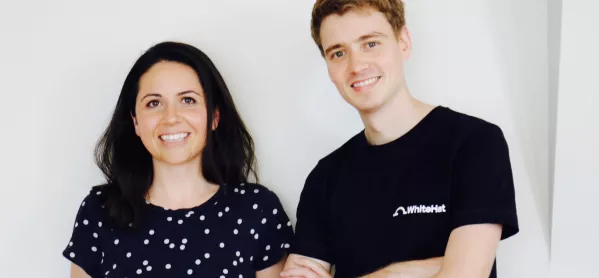Pegging apprenticeships to academic levels leads to confusion for employers, apprentices and parents alike, the founders of a high-profile apprenticeship company have said.
Writing in Tes, the co-founders of tech start-up and training provider WhiteHat, Euan Blair and Sophie Adelman, argue that a greater level of imagination is needed in the design of the apprenticeship system when it comes to benchmarking and progression.
They write: "Unfortunately, academic levels serve little purpose for employers and are a poor and unnecessary attempt to translate applied learning back into an academic frame of reference.
"We need to have sufficient confidence in the quality of the apprenticeships that we are producing to move beyond the aping of academic qualifications, and instead create a new way of evaluating our apprenticeships by referencing professional pathways... You might have an MA (level 7) in history, but that leaves you no better prepared – from a skills perspective – to be effective in an entry-level job than someone starting in the role whose highest previous qualification was A levels (level 3).”
Create an entry/intermediate/advanced system
The Whitehat co-founders call for the system to be closer matched to career development. Blair and Adelman write: “Regardless of your prior academic qualifications, if you are entering a role for the first time, you start as an entry-level apprentice. You can then progress to an intermediate level apprenticeship. Finally, after successfully completing this, you can start an advanced apprenticeship. The whole process might take up to five years.
“This would make the system much easier to navigate and allow for clearer pathways to be built, underpinning a long-term approach to learning and development. It would also support the creation of broader apprenticeships, and ensure that they don’t become too niche at the outset.”
'Move beyond the aping of academic qualifications'
The WhiteHat co-founders give the example of the level 3 team leader/supervisor apprenticeship, which is equivalent to A levels or BTECs. In order for someone to start on this standard, the pair said, candidates need to have “several years of experience and a leadership position”.
It has the same academic level as an accounts assistant apprenticeship or a business administration apprenticeship, which is focused on teaching people the fundamentals of working in a business environment for the first time.
Blair and Adelman add: “We need to have sufficient confidence in the quality of the apprenticeships that we are producing to move beyond the aping of academic qualifications, and instead create a new way of evaluating our apprenticeships by referencing professional pathways.”
The full comment piece is available in the 24 August edition of Tes. Subscribers can read the full story here. To subscribe, click here. To download the digital edition, Android users can click here and iOS users can click here. Tes magazine is available at all good newsagents




